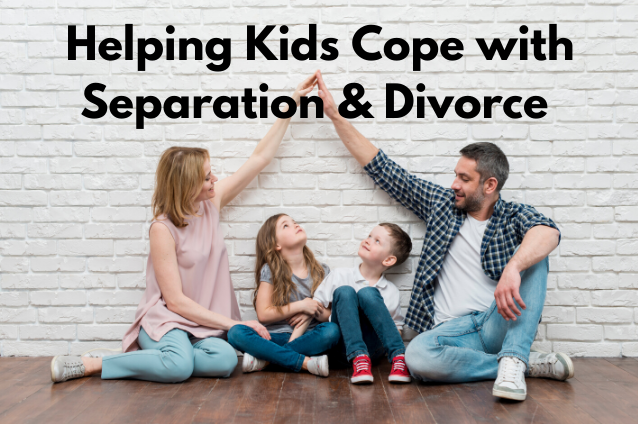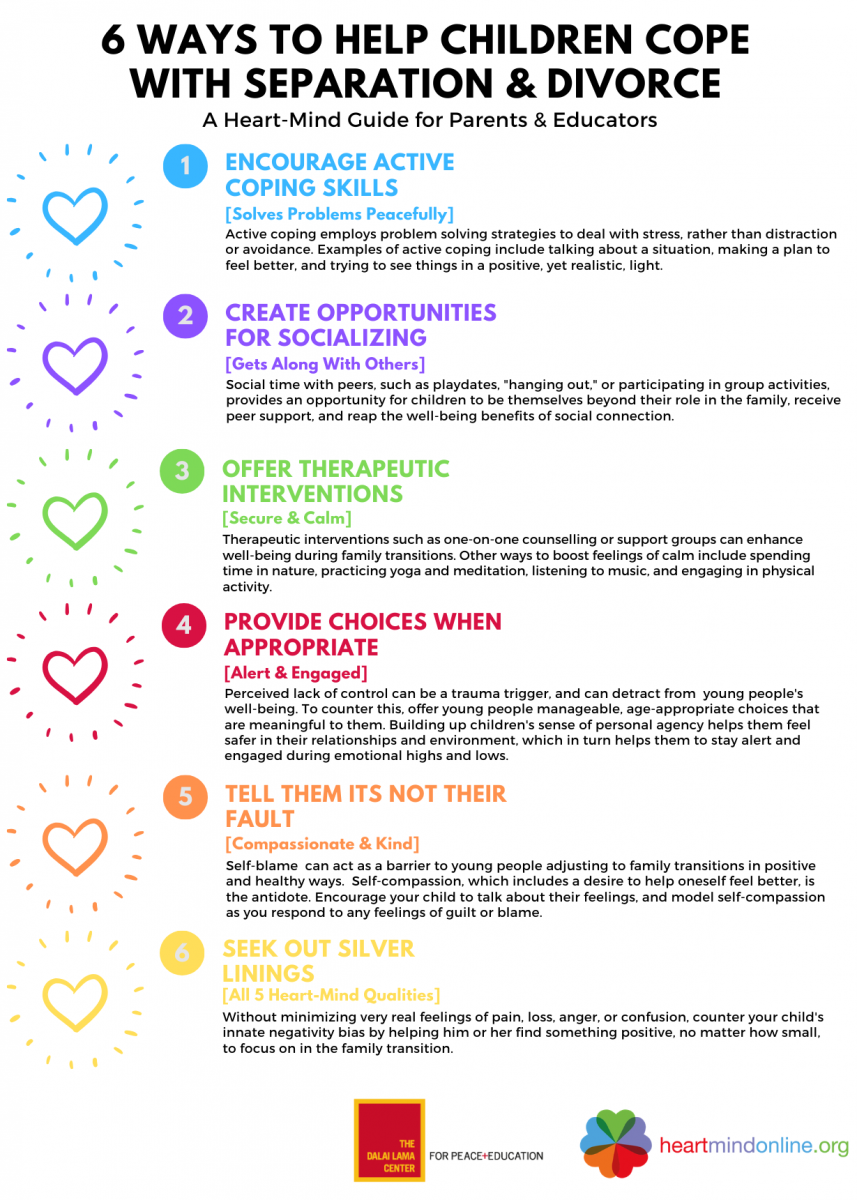
Family transitions such as separation and divorce are often an emotionally challenging time for children and the adults who care for them. During these times, children’s needs for security, reassurance, and connectedness tend to increase, and it is often unclear to parents and educators how to best respond to these needs.
Will my child feel like this forever? Has their behaviour permanently changed? How can I possibly meet my child's needs while I, myself, don’t feel quite ok?
One empowering perspective to adopt in the midst or recent aftermath of family transition is the “crisis perspective” of divorce (which can easily apply to separation or other forms of major family change). The crisis perspective suggests that some children may experience immediate, temporary, or short-term effects on their mental and social well-being associated with parental divorce.[1] It also suggests that most individuals will adjust to the family change over time, and will fully recover from its effects. The primary factors that determine how children bounce back are their personal resources and the support they receive. [2]
The Infographic “6 Ways to Help Children Cope with Separation & Divorce” suggests a variety of simple evidence-informed ways – grounded in Heart-Mind well-being – for adults and educators to help young people thrive through the changes and challenges that accompany family transition. They can be implemented individually or collectively, and support all five Heart-Mind Qualities.

Click below to download (PDF File):
References:
(1) Sandler, Tein, & West. (1994). Coping, stress, and the psychological symptoms of children of divorce: a cross-sectional and longitudinal study. (2) Teja, Sameera, and Arnold L. Stolberg. (1994). Peer Support, Divorce, and Children's Adjustment; Silitsky, Daniel. (1997). Correlates of Psychosocial Adjustment in Adolescents From Divorced Families. (3) Emery, R. E., Kitzmann, K. M., & Waldron, M. (1999). Psychological interventions for separated and divorced families; Kalter, N. & Schrier, S. (1993). School-Based Support Groups for Children of Divorce; Lee, C., Picard, M., Blain, M. (1994). A Methodological and Substantive Review of Intervention Outcome Studies for Families Undergoing Divorce (4) Kim, L.S., Sandler, I.N., & Jenn-Yum, T. (1997). Locus of control as a stress moderator and mediator in children of divorce. (5) Bussel, D. (1996). A Pilot Study of African American Children's Cognitive and Emotional Reactions to Parental Separation (6) Amato, P. (2000). The consequences of divorce for adults and children. Image from freepik.com
Uphold-Carrier & Utz (2012) drew this conclusion from their review of the literature preceding their analysis of long-term effects of parental divorce on children's mental health and feelings of family solidarity.
Amato (2000) found this to be true in his review of the literature on the consequences of divorce for adults and children.
